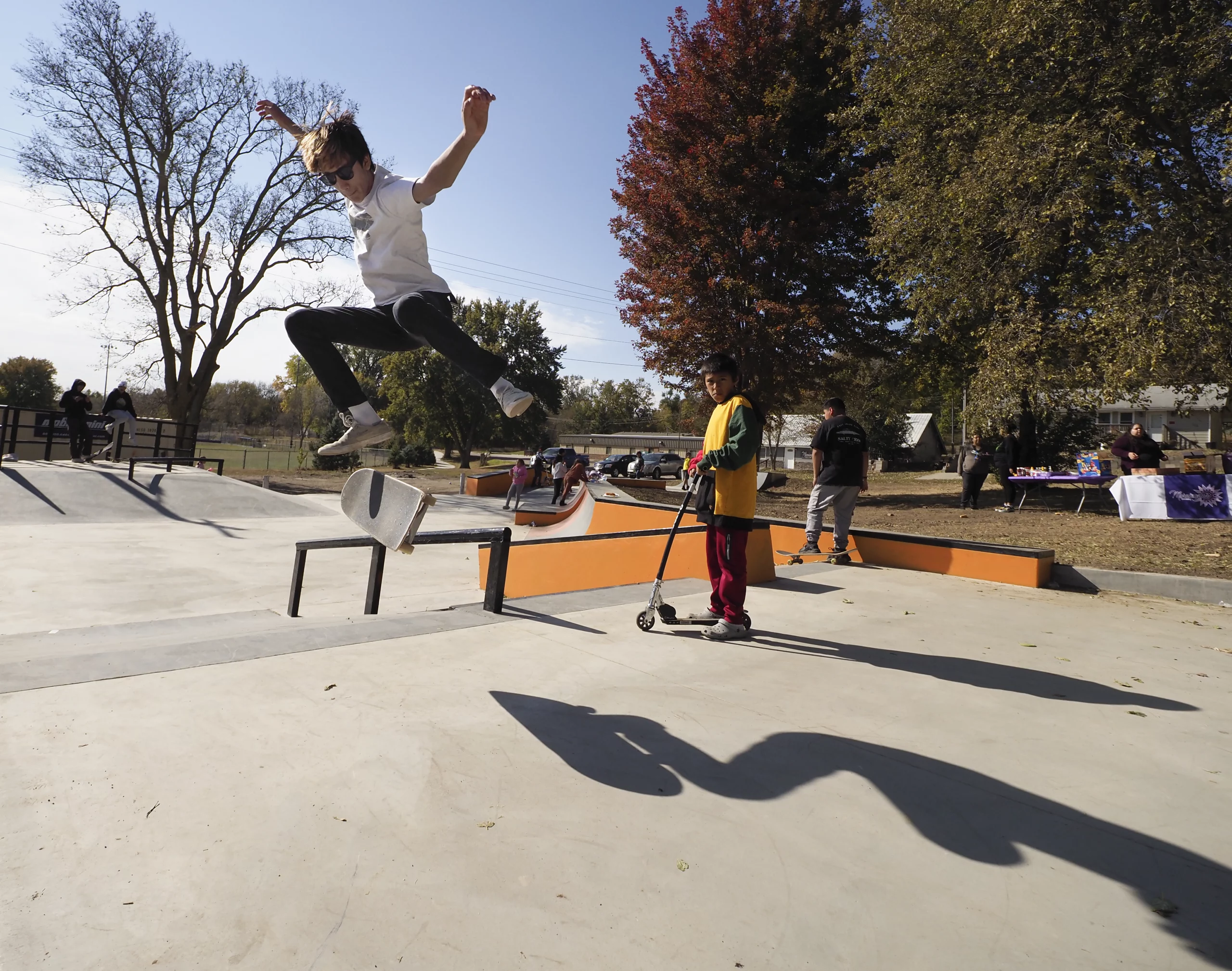Building Hope: Skate Park Transformation in Nebraska's Poorest County
Core Concepts
The author highlights the transformative impact of building a skate park in Nebraska's poorest county, focusing on the selfless act of a teenager named Junior.
Abstract
In Walthill, Nebraska, the construction of a skate park brings hope to the Omaha Reservation community. The initiative aims to address mental health issues and youth suicides by providing a safe space for children. Led by Joe Starita and Michael Grant, the project symbolizes collaboration between Native Americans and white donors. The skate park serves as a beacon of unity and opportunity for the reservation's youth, offering them a chance to engage positively with their surroundings. Through this endeavor, the community strives to preserve its heritage while fostering a brighter future for its children.
They built a skate park in Nebraska's poorest county. Then they watched Junior do something priceless. - Flatwater Free Press
Stats
"roughly $450,000" raised for the skate park project.
"15 teenagers and young adults attempted suicide. Six died."
"skateboarding is good for teenagers’ mental health."
Quotes
"I see this hope and this excitement in the younger kids. I haven’t seen it here before." - Dr. Belinda Hinojos
“I mean, why not?” - Junior
Key Insights Distilled From
by Matthew Hans... at flatwaterfreepress.org 10-28-2022
https://flatwaterfreepress.org/they-built-a-skate-park-in-nebraskas-poorest-county-then-they-watched-junior-do-something-priceless/
Deeper Inquiries
How can initiatives like the skate park project be replicated in other marginalized communities?
Initiatives like the skate park project can be replicated in other marginalized communities by following a similar community-driven approach. Key steps include conducting surveys or consultations to understand the needs and desires of the community members, securing funding from various sources such as foundations, private donors, and government grants, involving local stakeholders in the planning and decision-making process, collaborating with experienced organizations or professionals for implementation, and ensuring sustainability through ongoing maintenance and programming. Building strong partnerships between different groups within the community and fostering a sense of ownership among residents are also crucial for success.
What challenges might arise in sustaining the positive impact of such projects over time?
Several challenges may arise in sustaining the positive impact of projects like the skate park initiative over time. These challenges could include financial constraints for ongoing maintenance and programming, lack of community engagement or support leading to underutilization or neglect of the facility, changes in leadership or priorities that affect long-term commitment to the project, issues related to safety or vandalism that deter participation, difficulties in adapting to evolving needs or preferences of community members, and potential conflicts arising from differing opinions on how resources should be allocated within the community. Addressing these challenges requires proactive planning, continuous communication with stakeholders, regular evaluation of outcomes, and flexibility to adjust strategies as needed.
How does Junior's selfless act reflect broader themes of community support and resilience?
Junior's selfless act reflects broader themes of community support and resilience by exemplifying compassion, generosity, empathy towards others' needs within his own marginalized community. His willingness to give away a valuable prize he won demonstrates a deep sense of caring for his peers' well-being despite his own circumstances. This act not only fosters unity among residents but also inspires hope and positivity within a challenging environment where mental health issues are prevalent. It showcases how individuals can make a significant difference through small gestures that ripple outwards to create a stronger sense of belonging and mutual aid within their community. Junior's action symbolizes an embodiment of communal strength built on kindness and solidarity that transcends individual struggles towards collective upliftment.
0
